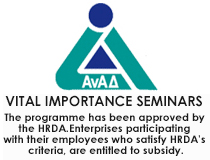Analytics and Business Intelligence in the Hospitality Food & Beverage Industry

Instructor
-
 Sanjay NadkarniDirector of Innovation & Research
Sanjay NadkarniDirector of Innovation & ResearchDr. Sanjay Nadkarni is currently with Arabian Falcon Holding in the UAE. From 2009 to 2022, he was the Director of Innovation and Research and an Associate Professor at the Emirates Academy of Hospitality Management, a strategic business unit of Jumeirah Group Dubai Holding. His work encompasses research, teaching, and advisory activities.
Sanjay’s domain interests are in the convergence space of digital innovation and sustainability in the services sector. His portfolio comprises academic and applied research, advisory and consultancy assignments for corporate, government and multilateral agencies. His pedagogic practice includes visiting professorships at premier academic institutions in Asia and Europe. He is also a verified Dubai Futures Research Contributor and a Non-resident Fellow of Trends Research & AdvisoryThink Tank. The recognition of his work is reflected in the awards and citations of merit he has received.
Sanjay’s focus is on developing and co-creating applied research and strategy frameworks that have tangible impact on industry and society. He is passionate about using innovation frameworks for leveraging Industry 4.0 and democratizing AI and data science to benefit small & micro-businesses and enjoys mentoring in digital and social entrepreneurship.

Recent Participants

Date
- Μαρ 21 - 22 2019
- Expired!
Cost
- Fully Subsidized
Location
The programme includes:
- Two full-days seminar at a luxurious venue.
- Half a day consulting session for each participating company.
- An extensive report for each participating company formulated to their needs. The report will include recommendations and suggestions for further consideration by the management.
- Full access to a seminar blog containing all presentations and further additional support materials and resources for each seminar participant.
- Full lunch and three coffee breaks for the two-days seminar for each seminar participant.
- No VAT is imposed to Digipro Executive Management Seminars. Please contact us for clarifications.
Given the contribution of tourism to Cyprus’s economy, the hospitality sector assumes a significant role as an enabler of socio-economic growth by generating tourism Euros and employment opportunities. The Food & Beverage (F&B) industry forms an important component of the hospitality sector. Data compiled by EUROSTAT suggests over 20% of the workforce in Cyprus’s service sector works in the F&B industry. The growth drivers of the service sector of an economy are increasingly beholden to data-driven decision making, the convergence of which forms the basis of business intelligence (BI). While other verticals in hospitality are increasingly adopting a data-driven approach to decision making, the F&B industry is yet to leverage the potential of business intelligence.
The key issues for the F&B businesses are lack of awareness relating to
- Value of data-driven decision making
- Capacity to utilize proprietary and public data for gauging guest satisfaction
- Benefits of menu engineering to drive optimal resource utilization and profitability
To fully realize the economic and socio-cultural benefits, it is contingent upon the F&B industry to complement the art of gastronomy with a scientific approach to decision making by leveraging the convergence space of digital platforms and data analytics. Given its fragmented nature and scale of operations, capacity building using training and exposure to best practices attains particular significance in order to sustain growth in revenue and cost optimization through customer acquisition, retention and satisfaction. In practical terms, this need translates into enabling the restaurateurs, café owners, outlet managers and employees to use cost-effective digital platforms and tools for data analysis in making informed decisions in finance and operations (e.g. menu engineering, staffing) and marketing (e.g. social media engagement, customer satisfaction and retention).
Awareness, guidance and mentoring complemented by training are essential to enable the F&B industry to overcome the challenges identified by leveraging cost-effective, easy to use digital platforms for data-driven business intelligence.
This seminar targets the management team of F&B of hotel outlets, restaurants, and cafes as well as the private sector owners/F&B managers of small and micro-enterprises in the hospitality food and beverage industry. Furthermore, this expert seminar will offer valuable insight to the hospitality industry stakeholders who deal with revenue and marketing operations.
Participants will benefit from the seminar as they will understand how to effectively scope, source and analyze data for achieving competitive advantage, profitability and sustainability.
The general objectives of this expert seminar are to enable F&B outlet operators and managers to (i) gain actionable insights for data-driven decision making with analytic tools within the framework of conventions and practices of the F&B industry (ii) collate, organize and analyse data (proprietary and external/third party) leading to informed decision making under conditions of business risk and uncertainty for enhanced competitiveness and profitability.
The specific objectives pertaining to knowledge, skills and attitude are as follows:
Knowledge related objectives
- Be aware of in-house and external data sources and repositories
- Be familiar with trending digital platforms for data analyses and visualization
- Understand the resource implications for data-driven decision making
Skills related objectives
- Utilize cloud-based platforms for capturing and analyzing guest satisfaction data
- Build and maintain data repositories of F&B operations in easy to use and access format
- Define KPIs and metrics for menu engineering
- Design monitoring mechanisms using quality control charts for gauging impact of menu engineering
Attitude related objectives
- Appreciate the importance of BI through data in decision making
- Instil a data-driven culture among internal stakeholders
In-house visits objectives
The overarching objective of this component is to assist the F&B businesses to identify the key challenges and opportunities in deploying Analytics & BI initiatives specific to their operational context. This goal will be achieved by way of a situational analysis of the Analytics & BI landscape informed by current trends, research and applications in the F&B industry. The key themes include, though are not restricted to, defining and computing industry-specific metrics and KPIs with a focus on revenue, guest satisfaction and quality control using data leveraged from digital platforms. The specific objectives towards this end are to:
- Perform a situational analysis of specific issues pertaining to the business
- Audit existing processes in operations and strategy from a BI standpoint
- Audit existing digital capacity and practices for tracking metrics (e.g. web and social media analytics) for guest satisfaction
- Audit digital assets including POS software from a menu engineering standpoint
- Recommend a series of BI action points based on the afore-listed audit points to enhance business efficiency and stakeholder value addition
| Day 1: 7:15 – 7:45 7:45 – 08:15 | Arrival and registration Seminar overview and introduction |
| 8:15-10:15 | Service quality framework and metrics
|
| 10:15-10:30 | Break |
| 10:30 – 12:30 | Digital and cloud computing tools for F&B operations
|
| 12:30 -13:30 | Lunch Break |
| 13:30 – 15:00 | Customer satisfaction measurement in the digital age
|
| 15:00 – 15:15 | Break |
| 15:15 -16:15 | Social Media analytics
|
| Day 2: | |
| 7:15-7:45 7:45 – 8:15 08:15 – 10:15 | Arrival and registration Seminar recapitulations Profit optimization computations and tools · Revenue metrics in F&B (RevPASH) · Demand estimation models for perishable food items · Statistical approach for target valuations Activity 5: Use one-tail t-test to ascertain claim of upselling leading to higher RevPASH. Case Study 4 Time-and capacity-based measurement of restaurant revenue Abstract: In this article, the authors examine how a common metric of revenue performance—RevPASH, or revenue per available seat-hour—is calculated. In a simple example, a real restaurant, and an extensive simulation study, the authors find inaccuracies in the existing approaches to calculating RevPASH. However, the extent of the inaccuracy is much greater when RevPASH is calculated based on check-open times rather than on the time interval from the check open to check close. Since accurate RevPASH values are important in guiding managers’ revenue-enhancing decisions, the article’s findings have importance for practice. Furthermore, as RevPASH has been a commonly used metric for academic research, the article’s findings are important for those performing research on restaurant revenue management. Source: Thompson, G. M., & Sohn, H. (2009). Time-and capacity-based measurement of restaurant revenue. Cornell Hospitality Quarterly, 50(4), 520-539. |
| 10:15-10:30 | Break |
| 10:30-12:30 | Menu engineering
|
| 12:30-13:30 | Lunch Break |
| 13:30-15:00 |
Web analytics and visualization
|
| 15:00 – 15:15 | Break |
| 15:15-16:15 | Service and cost control charts · KPIs in service and costs operations · Process variations and control charts · Quality control data visualization and dashboards Activity 8: Using a spreadsheet, participants will develop a template for gauging process variation and maintaining quality control using control charts. Case Study 5 Food and Beverage Cost Control Process of Hotel Enterprises Abstract: Income provided from food and beverage (F&B) sales is an important source of revenue for the hospitality industry. Therefore, hotel enterprises which are one of the most important elements of the accommodation industry should perform an F&B cost control in order to minimize costs and increase customer satisfaction. For an effective cost control process; F&B cost control processes and cost control points need to be monitored carefully. The purpose of this study is to investigate F&B cost control processes of hotel enterprises in Orlando, FL and perform an importance-performance analysis for the issues appear to be critical in F&B cost control processes. Regarding the literature review, it is expected that there is a significant difference between the size of the hotels and their F&B cost control processes. To this end, in order to collect data, the research establishes a questionnaire survey to be performed by F&B managers of Orlando hotels to find out the existence of those possible differences. Also, the research investigates the usage rate of Activity-Based Costing (ABC) in hotel enterprises as an overhead allocation method. The research will deploy quantitative data analysis for the evaluation of survey results. Source: Cengiz, E., & Cengiz, F. (2015, May). Food and Beverage Cost Control Process of Hotel Enterprises: The Case of Orlando, Florida. 4. In International Interdisciplinary Business-Economics Advancement Conference (pp. 103-114). |
Strategically the objective of the seminar is to provide actionable insights for data-driven decision-making with analytic tools within the framework of conventions and practices of the F&B industry. The participants will be guided in a very concise and condensed way, both on the strategic and conceptual elements as well as the practical applications of data analytics. They will gain pertinent knowledge in data scoping, visualization and analysing capabilities and approaches as well as appreciate the role of Big Data in determining strategy.
There will be demonstrations of:
- Methodologies and tools for analytics
- Strategies and actions plans specific to F&B industry
- Exposure to F&B menu engineering framework Pricing strategies and modeling
In addition, this seminar will be interactive and hands-on in order to explore further potential within the participants’ own context and realities.
Action learning real-life examples will be used
A number of action learning examples and case studies will be utilized to demonstrate how F&B businesses leverage data analytics for maximizing their profitability and competitiveness. This seminar is designed for a pragmatic approach.
Following the workshop, there will be an on-site visit to each of the attending businesses. This amounts to high-level consulting advice that is tailored to the specific needs of the café/outlet/restaurant or allied business verticals and may be discussed in full confidentiality rather than in the open forum of the workshop. Participants will be invited to share with their co-workers and affiliates the domain knowledge gained during the seminar. Themes include (though are not restricted to)
- Overall data-driven business intelligence landscape in the F&B sector to identify service delivery gaps
- Analytical skill sets using legacy and open source cloud-based platforms for actionable insights on revenue and guest satisfaction
- Quality control policies for guest experience and menu engineering
During the in-house visits, there will be discussions and on-site demos on how to use data visualization and predictive analytics using micro and macro level data related to:
- REVENUE MANAGEMENT
- CUSTOMER ACQUISITION AND ENGAGEMENT
- QUALITY ASSURANCE
The four hours of on-site consulting will be offered by Dr Sanjay Nadkarni, who will subsequently write a brief report summarizing the main discussion points and including recommendations and action points for further consideration by the management. The recommendations will be in line with the strategy of leveraging cost-effective and user-friendly digital tools and platforms for performing BI analytics with minimal investment in time and resources on part of the F&B business owners and co-workers.
The event is finished.

SUBSIDY, ATTENDANCE, AND CANCELLATION POLICY
HRDA Subsidy and Seminar Attendance
- A company’s participant is eligible for a subsidy when their Social Insurance and Industrial Training contributions have been settled in full by the time of registration/seminar. In case of ineligibility/disqualification, the company will be invoiced the full amount per participant.
- A company’s participant is eligible for a subsidy if he/she completes an obligatory attendance of 75% or more (both during seminar and company visit). In case of failure to complete the attendance, the company will be invoiced the full amount, per participant.
Cancellation and Substitution Policy
- Cancellations can be accepted up to 5 working days prior to the seminar without penalties. For any cancellations received after the deadline (or no-shows), the company will be invoiced the full amount per participant.
- Substitutions can be accepted any time prior to the seminar without penalties.
- Τhroughout the seminar participants must have their camera and microphone open, for better communication and as defined by the specifications of HRDA otherwise participants will not be approved by HRDA.

